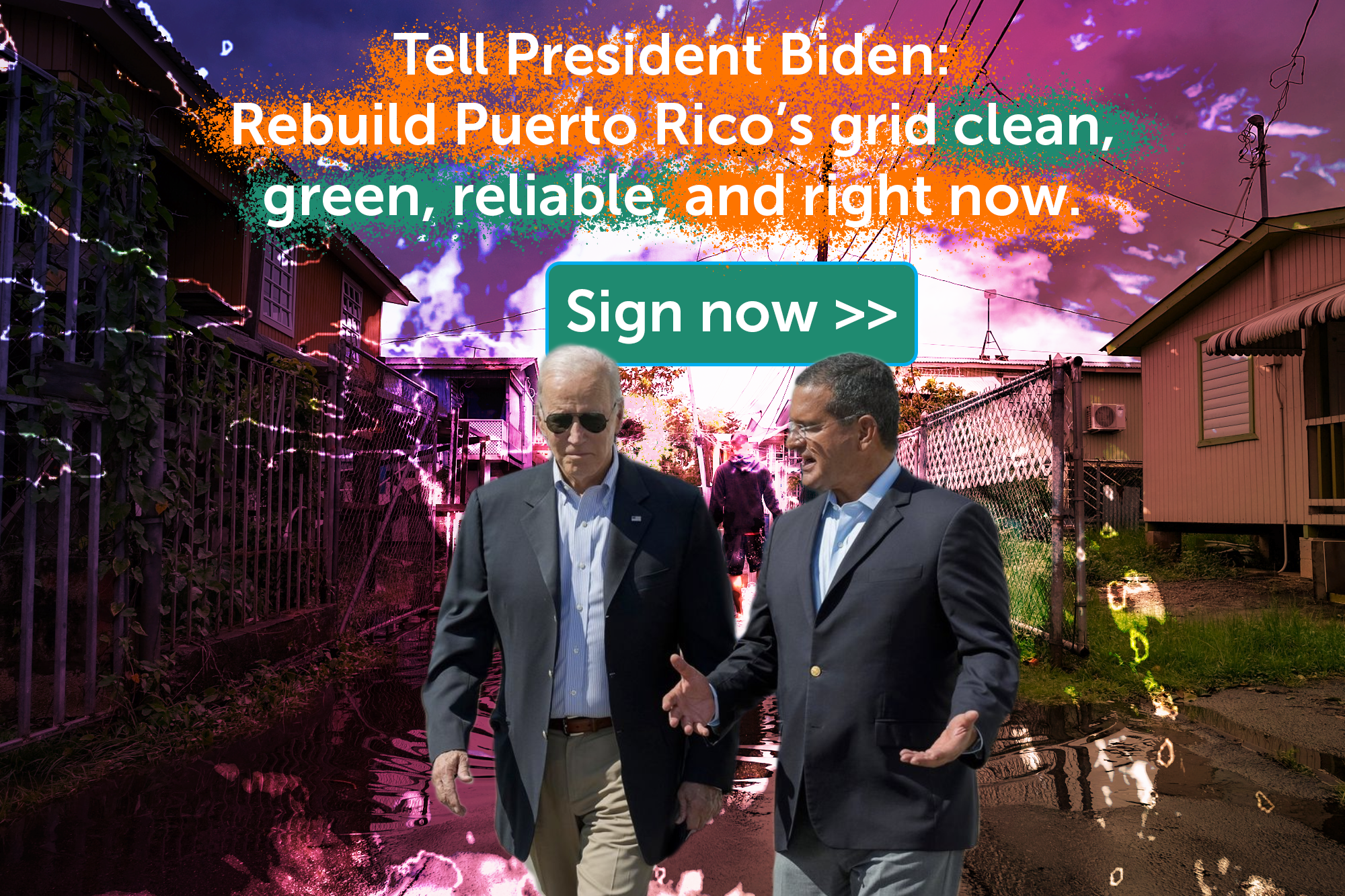|
Trouble reading this email? Click here to view it online. |
|
President Biden made a welcome and empathetic trip to Puerto Rico this week. No paper towels were thrown.
Don't get me wrong, Biden is doing a much better job at disaster recovery than the defeated fossil fueled fascist Trump. But Puerto Rico needs more than empathy, they need a functioning power grid that's clean, safe, and locally controlled. Congress, FERC (the Federal Energy Regulatory Commission), and the White House have all been promising Puerto Ricans clean, reliable electricity since 2017, when Hurricane Maria devastated the island.
But more than two weeks after Hurricane Fiona knocked out power to 3 million people, power outages are still an everyday occasion and Energy Secretary Granholm has yet to start up her "supercharged" plan to rebuild Puerto Rico's electric grid.
Enough is enough, sign our petition with partners to demand the Biden Administration address Puerto Rico’s power grid clean, green, reliable, and right now. |
|
|
When Hurricane Maria hit, the government-owned Puerto Rico Electric Power Authority (PREPA) operated the power grid. But PREPA has failed to make needed investments due to poor management and outright corruption. In response, Congress earmarked $10 billion through the Federal Emergency Management Agency (FEMA) to rebuild Puerto Rico's devastated power grid. Those projects were given out to the private corporations and greedy international contractors.
The work didn't get done, and instead of building back better, the situation has only gotten worse. Blackouts and brownouts are common, even without extreme weather. And PREPA and their contractors face widespread labor abuse accusations and have utterly failed to build safe, renewable-powered micro grids that are a perfect solution, and what many Puerto Ricans specifically asked for after Maria.
Instead of building back better, or investing in solutions, Puerto Rico's utility has raised rates prices seven times, and Puerto Ricans (43% of whom live below the poverty line) pay more than twice the U.S. average price for electricity.
Last summer, organizations in Puerto Rico and the diaspora called on President Biden to take action. And 198-methods joined partners in calling for FEMA to reform it's process, and specifically invest in clean, renewable energy after communities — especially poor, black, and brown communities who are hit hardest — are devastated by climate fueled super storms.
As Professor Pedro Saadé, from the University of Puerto Rico's School of Law, noted, "Puerto Rico has the right to a resilient, citizen-based and environmentally sound electricity system."
Sign if you agree: President Biden must address Puerto Rico's power grid failures.
Thanks,
Body image is a composite from the White House, NASA/CIRA, and press reports |
|
You're receiving this email because you're awesome, and/or subscribed via our website or one of the many joint actions we run with partners. |
|
|
|
198 methods is an experiment in melding online and direct action styles of organizing, with an emphasis on developing new projects and partners. You can learn more about us at our website, www.198methods.org |

